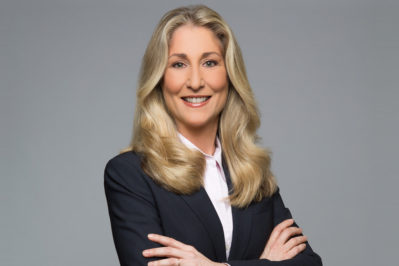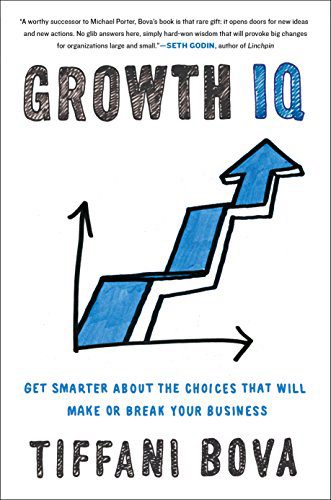When facing competition, a company that focuses only on improving their product is likely to meet with mixed results. In this episode of Mastering Innovation on SiriusXM Channel 132, Business Radio Powered by The Wharton School, Tiffani Bova, Global Customer Growth and Innovation Evangelist at Salesforce, advocates for the value of strong consumer experience in any successful business.
In her new book, Growth IQ, Bova analyzes the extent to which customer experience plays a role in brand loyalty, arguing that the key to substantial growth is an accurate understanding of how a customer interacts with the company’s product or service. Drawing from her experience at Salesforce, she discusses the challenges of measuring something as nebulous as customer experience. Citing examples from Uber, Adidas, United Way, and more, Bova emphasizes the significance of focusing on experience in addition to the product.
An excerpt of the interview is transcribed below. Listen to more episodes here.
Transcript

Saikat Chaudhuri: Tell us a bit about what Salesforce does and how you can help make this focus on the customer, the experience and all these aspects in your role.
Tiffani Bova: The short answer to that is we are extremely focused on customer success. Our customers who use our technology, we want them to be more successful in their own business. That has this combination effect of engaging with them on the sales front using our technology, which is customer relationship management or CRM. We have a sales cloud that helps them to sell better and organize the process of selling more efficiently and effectively. Then we have marketing services on Marketing Cloud, which is about watching customers, how they journey map, and social listening — many of the things that go into driving brand awareness and thinking about it from a sales and marketing perspective. We have about nine or ten clouds. There’s lots of things we do, but the three that I spend the most time around are sales, marketing, and customer service — helping companies in their call centers, their field service people. We help them make smarter decisions with their customers and use data in a more appropriate way to bring insights so that they can perform better.
Chaudhuri: Makes a lot of sense. It’s very powerful to think of technology as an enabler, as opposed to the end-all and be-all.
Bova: I couldn’t agree more. I always joke that we don’t sell technology, we sell change. And change is hard. We can only enable change; we cannot make it happen. Whenever I meet with customers and they go, “Oh, we love your technology but nobody is logging in,” “What can you do, Salesforce, to help us with that?” I tip my head, “I’m not sure how we can help you get your people to log in.” I’m not sure the utilization issue is a Salesforce problem or anybody else. It’s how do you change behaviors of your employees so that they can get the power of the enabling technology in front of the right people to, once again, help them be successful with their customers.
“We’ve found that 80% say the experience a company provides is as important as its products.” – Tiffani Bova
Chaudhuri: How do you influence the behavior of your employees?
Bova: That’s a great question, because there’s just so much innovation coming at employees that are customer facing. More specifically, if I focus in on sales marketing and customer service, there’s just been so much. How do you navigate it, number one? If you’ve been in sales marketing or customer service or owned your own business over the last decade and a half, you’re going to be like, “I don’t even know where to begin. I’ve started to use so many technologies. I’m not sure what kind of return I’m getting on that.” There’s a bit of fatigue in the market from consumers overall. There are also employees saying, “I cannot log in to another tool,” and “Do I need five things to do this one action?” The other is fear of not understanding how some of this innovation can actually benefit them. They’re worried that if they embrace it, it might replace their job or make them less effective or efficient.
The last thing I’d say is they don’t understand the power or value that it can bring. I’d say those are the three reasons why enabling tools and technologies aren’t used as much as they could be.

Chaudhuri: I like that as a nice example of what you’re talking about, basically shaping the customer experience, which means understanding the customer and what they’re trying to do and then helping to navigate that. That seems to be part of your role, to figure these things out. Am I correct?
Bova: You are absolutely correct. I’m a huge proponent of “experience is the new product,” and that throws people who develop products into a complete tailspin.
Chaudhuri: Absolutely. Tell us more about that vision.
Bova: It’s kind of soft and squishy; if you can’t metric it or you can’t manage it, how do you measure it? Do you say, “Oh, we’re really customer centric and we’re very focused on customer experience,” and then you can ask the executive right behind that comment, “Well, how do you measure it?” And they say, “Well, we, you know…” and then it gets a little soft. You can say, “How many products did someone buy, what did they pay? How many more will you sell?” It’s much easier to put money and people behind anything where there’s wood behind that arrow, if you will. The customer experience sometimes gets a bad rap because it’s hard to figure out how you can measure it.
“The reality of what customers feel from a brand versus what the brand thinks they’re delivering is very different.” – Tiffani Bova
One of your own Wharton Professors, Peter Fader, spent a ton of time around customer centricity and really figuring out what the lifetime value of a customer is. If you start to look at some of those things, it brings a little bit more reality to using customer experience as a metric, especially when developing products and innovating. Does the customer actually value it and are they going to get anything out of it?
Chaudhuri: From working with all these companies, what are the biggest lessons that you draw? How does one become successful in that endeavor?
Bova: First, I’d say that there is a big gap between what you think — as a business, a business owner, or an individual contributor — what you think the experiences are that your customers have versus what they actually have. We’ve found that 80% say the experience a company provides is as important as its products. That’s a big statement. 67% of them said they’ll pay more for great experience. Many people are like, “How do we win in the price war?” Customers are not necessarily saying it needs to be the cheapest or the best price; it’s, “Am I going get the best experience from this brand? Will they be there for me?”
The reality is that some 50% have stopped buying from a company because a competitor provided a better experience. So even the experience is winning on switching. Then, unfortunately, 50% of customers say that most companies fall short of the experience expectations. The reality of what customers feel from a brand versus what the brand thinks they’re delivering is very different.
Chaudhuri: Based on what you’ve been saying, can you give us some examples of companies that have been successfully able to navigate all this?
Bova: There are certain ones that we’ve been talking about for a long time: you could say Nordstrom or Four Seasons, where they’ve really leaned into customer experience. But I like to use Uber now, or ride sharing, as an example. Note that I’m speaking of a very specific brand, but to sort of rephrase what Clayton Christiansen says in Competing Against Luck, it’s that you’ve got a job to do. I’m going to either catch a taxi because I need to go across town, or I’m going to catch an Uber. Right? The same job would be accomplished regardless of which one I choose.
Why are people choosing Uber over taxis? The jobs are the same. And, more importantly, they’re not only choosing Uber, but they may be choosing it during surge pricing. They may actually be willing to spend more money and wait a little bit longer in some cases. In my case, I’ve stood on the corner in freezing cold weather watching taxis drive by waiting for my Uber. It’s crazy. During surge pricing. So there’s an example of where I have said, “I’m not only willing to wait, I’m going to spend more money for the same job to be done using this because the experience it gives me.” For me, the experience is that, one, I don’t have to carry the currency of whatever country I’m in, or cash. If I’m in the U.S., I don’t have to worry about the credit card machine not working. Two, it attaches right to my expense report system, so I don’t have to worry about turning in receipts. And for me, because I travel around the world and I’m usually by myself, I always think from a safety perspective, “Someone would know where I was last.” That experience to me is worth the surge pricing, is worth me waiting that extra couple of minutes.
So there’s a great example of how in our consumer lives we’ve said every day, “If we catch Uber quite a bit (or Lyft or whomever it is), we choose to do that because of the experience that we have.”
About Our Guest
Tiffani Bova is the global customer growth and innovation evangelist at Salesforce and author of the forthcoming book Growth IQ: Get Smarter About the Choices that Will Make or Break Your Business (August 14, 2018; Portfolio), chosen by Inc. Magazine as one of four new business books you should read before the end of summer. Tiffani, a top influencer in Customer Experience, Digital Transformation, the Future of Work, and Sales, is a regular contributor to Forbes, Harvard Business Review, Marketing Matters on Wharton Business Radio – SiriusXM and Huffington Post in addition to a variety of industry-leading podcasts on sales, marketing and digital business.
Prior to working with Salesforce she was a VP, Distinguished Analyst and Research Fellow at Gartner. Bova has also lived in the fast lane of high tech, leading sales organizations, driving growth and creating durable competitive advantages at Sprint, Inacom, Interland (web.com) and Gateway Computers. Throughout, she learned how to lead sales and marketing teams in hotly competitive markets, created some of the first cloud based channel programs, and completely reinvented “go-to-market” tactics in several hardware and services businesses. Her high velocity years at the front lines also gave Bova the hands-on expertise executives crave in their strategic partners and made her an authentic, passionate and brilliant advocate committed to her clients’ success and prosperity.
Mastering Innovation is live on Thursdays at 4:00 p.m. ET. Listen to more episodes here.



